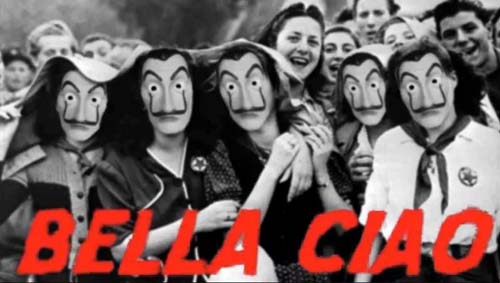Italy: A brief history of resistance anthem – Bella Ciao

Rome: Every year on 25 April, Bella Ciao is sung across Italy to mark the Festa della Liberazione which marks the country’s liberation from German occupation and fascist rule at the end of world war two.
Dating from the 19th-century, Bella Ciao was originally an Italian protest folk song, lamenting the harsh working conditions of the mondina workers in the paddy fields of northern Italy.
However the song’s lyrics were modified in the 1940s to tell the story of a young man who bids farewell to his love (“goodbye beautiful”) to join the Italian partisans.
“And if I die as a partisan, then you must bury me / up in the mountain / under the shade of a beautiful flower / and all those who shall pass / will tell me ‘What a beautiful flower / this is the flower of the partisan / who died for freedom’”.

The song was soon adopted as the anthem of the Italian partisans and today is sung worldwide as an anti-fascist hymn of freedom and resistance.
However in Italy, like the annual commemoration on 25 April, Bella Ciao remains divisive and is scorned by those on the right who refuse to celebrate Liberation Day.





